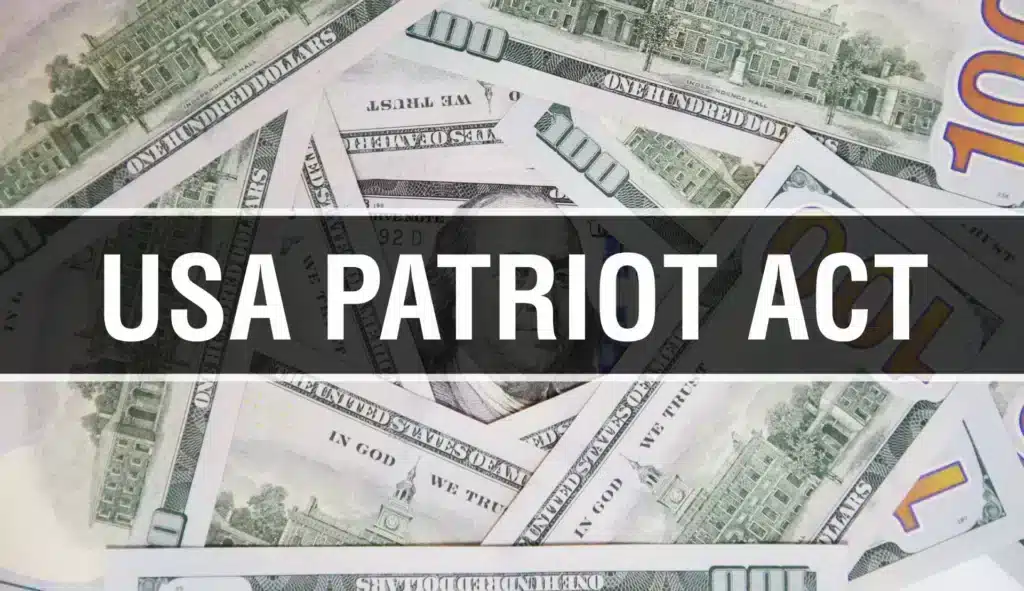On October 26, 2001, the USA Patriot Act–formally known as Uniting and Strengthening America by Providing Appropriate Tools Required to Intercept and Obstruct Terrorism–began taking effect. This landmark piece of legislation was a direct response to September 11th’s tragic events, with its primary goal of increasing national security by giving the government expanded surveillance powers. However, its potential effects on civil liberties have generated much debate. This article delves into the USA Patriot Act’s various provisions, looking into how best it can balance national security while safeguarding individual freedoms.

Background and Context
After the 9/11 terrorist attacks, America faced an unprecedented challenge to its national security. To meet this challenge, Congress swiftly passed and implemented the USA Patriot Act which strengthened law enforcement and intelligence agencies capabilities in combatting terrorism. The Act contains various provisions related to surveillance, financial transactions, and immigration policies.
Key Provisions of the USA Patriot Act
The USA Patriot Act contains many controversial provisions that have caused much debate over the years. Here we’ll look at some of the most contentious parts:
Section 215: Business Records
This section, often referred to as the “library records provision,” grants the Federal Bureau of Investigation (FBI) authority to acquire tangible items like books, records, papers and other documents for foreign intelligence or international terrorism investigations. Critics contend this provision is overly expansive allowing governments to infringe upon citizens’ privacy rights without adequate oversight or accountability.
Section 206: Roving Wiretaps
Section 206 permits the government to conduct roving wiretaps on suspected terrorists, monitoring their communication across multiple devices without specifying who or what it is targeting. This provision has raised concerns about potential Fourth Amendment violations as it allows authorities to surveil individuals without establishing probable cause or proving a direct connection to terrorism.
Section 213: Sneak and Peek Warrants
This provision allows law enforcement officers to conduct “sneak and peek” searches, which involve entering a suspect’s property without their knowledge, searching the premises, and sometimes seizing items. However, the government can delay notifying the suspect about the search, raising concerns about erosion of Fourth Amendment protections against unreasonable searches and seizures.
Section 505: National Security Letters (NSLs)
Section 505 authorizes the FBI to issue NSLs, and administrative subpoenas for gathering data related to national security investigations. These letters can be issued without judicial approval and often come with a gag order which prevents recipients from discussing the request. This provision has been criticized as potentially violating free speech rights guaranteed in both the First Amendment and Fourth Amendment protection against unreasonable searches.

The USA Patriot Act in the Mortgage Industy
The USA Patriot Act, while primarily focused on national security, has had a profound effect on the mortgage industry. With an emphasis on combatting financial crimes and money laundering, it implemented stricter compliance and reporting requirements for financial institutions – including mortgage lenders. As a result, mortgage lenders have experienced increased regulatory oversight as well as enhanced due diligence procedures designed to prevent illicit activities like mortgage fraud and guarantee financial transactions remain trustworthy.
Balancing National Security and Civil Liberties
The USA Patriot Act has been the focus of an intense debate about how best to balance national security and civil liberties. Supporters contend that the Act has been instrumental in foiling numerous terrorist plots and protecting American lives. They maintain that expanded surveillance powers are necessary in order to keep up with terrorists’ evolving tactics, who increasingly utilize modern technology for planning and executing attacks.
Opponents of the Act, on the other hand, claim it has gone too far in eroding individual freedoms and privacy rights. They argue that provisions like roving wiretaps, sneak and peek searches, as well as Section 215 have led to government overreach and abuse of power. Civil liberties advocates also voice concern about lack of transparency and accountability when using these powers, along with the potential for racial or religious profiling.
Equal Opportunities and Reforms
Since its passage, the USA Patriot Act has faced numerous legal obstacles. Courts have ruled on the constitutionality of various provisions within it, leading to reforms and amendments designed to achieve a better balance between national security concerns and civil liberties.
In 2015, Congress passed the USA Freedom Act in response to growing worries about the potential abuse of surveillance powers. This legislation sought to address some of the most contentious aspects of the USA Patriot Act – specifically bulk data collection. For example, it put an end to NSA’s mass collection of Americans’ phone records by requiring them to obtain specific warrants before accessing such data.
The USA Patriot Act Reauthorization of 2019
In 2019, Congress reauthorized certain provisions of the USA Patriot Act, such as roving wiretaps and lone-wolf surveillance authority. However, they also added new safeguards like increased oversight over use of National Security Letters and an expanded role for amicus curiae in Foreign Intelligence Surveillance Court (FISC).
Despite these reforms, there remain unresolved concerns about the balance between national security and civil liberties. Critics contend that the amended legislation doesn’t go far enough in protecting privacy rights; on the other hand, supporters contend that these modifications provide adequate oversight without jeopardizing counterterrorism efforts.
Technology’s Impact on Surveillance and Privacy
Technological advances have drastically reshaped surveillance and privacy since the USA Patriot Act’s passage. Encryption, for instance, has become a vital tool to protect sensitive data; however, law enforcement and intelligence agencies worry that encrypted communications could be exploited by terrorists or criminals to plan and carry out attacks undetected.
Recent years, the debate about striking an appropriate balance between privacy and national security has shifted to focus on encryption backdoors and government access to encrypted devices. This ongoing conversation emphasizes the necessity for comprehensive legal frameworks that govern technology use within national security initiatives and counterterrorism initiatives.
Mortgage Rater Conclusion
The USA Patriot Act remains a complex and divisive piece of legislation, with passionate arguments on both sides of the national security versus civil liberties debate. While providing law enforcement and intelligence agencies with valuable tools to fight terrorism, it has also raised serious concerns about potential erosions to individual freedoms and privacy rights.
As technology continues to advance, the challenges associated with striking a balance between national security and civil liberties will only grow more complex.



